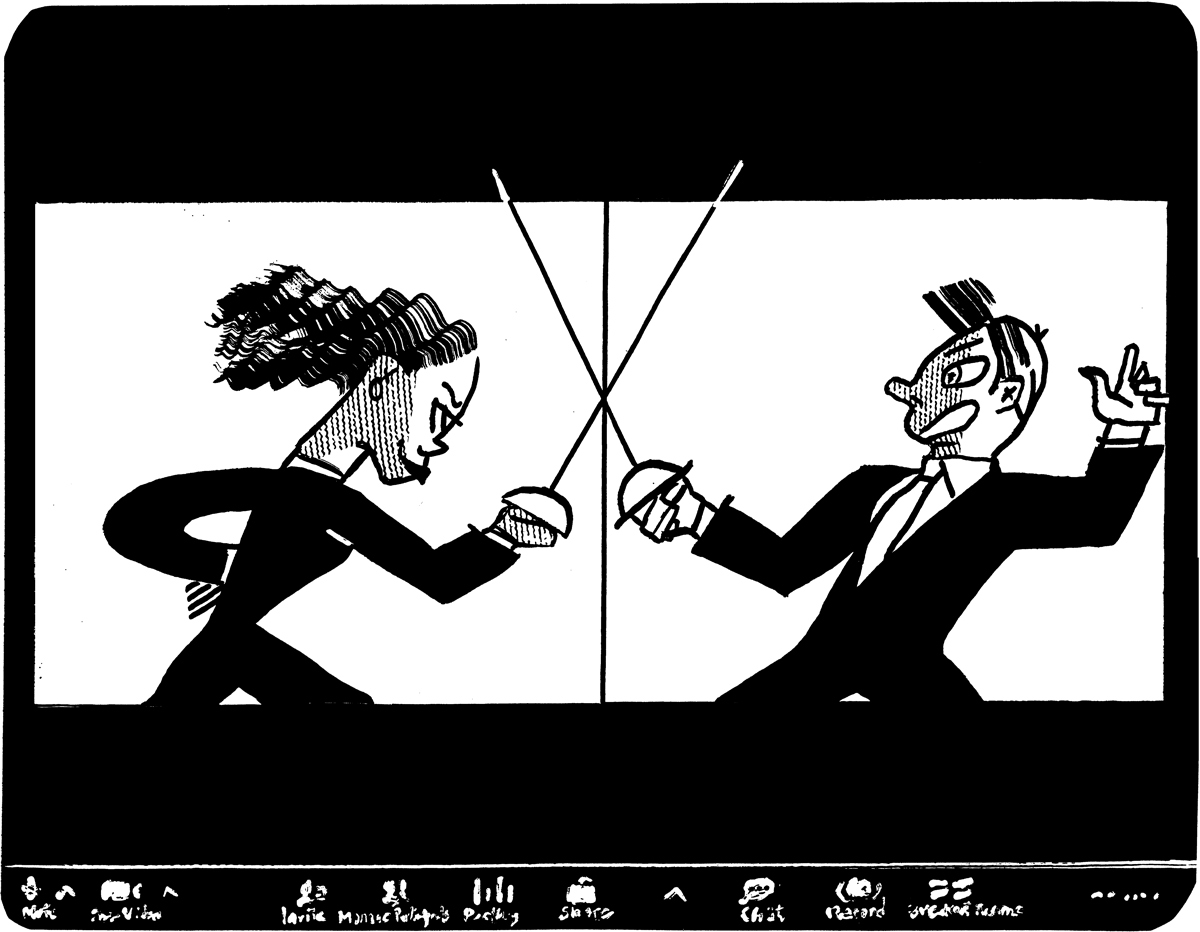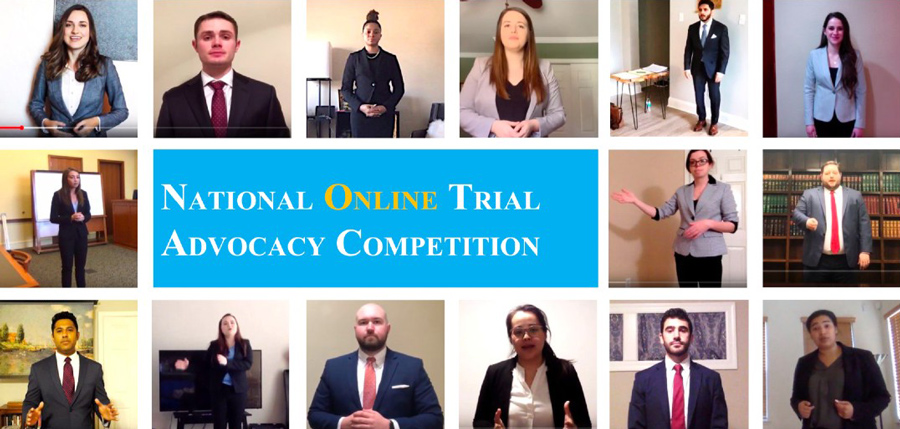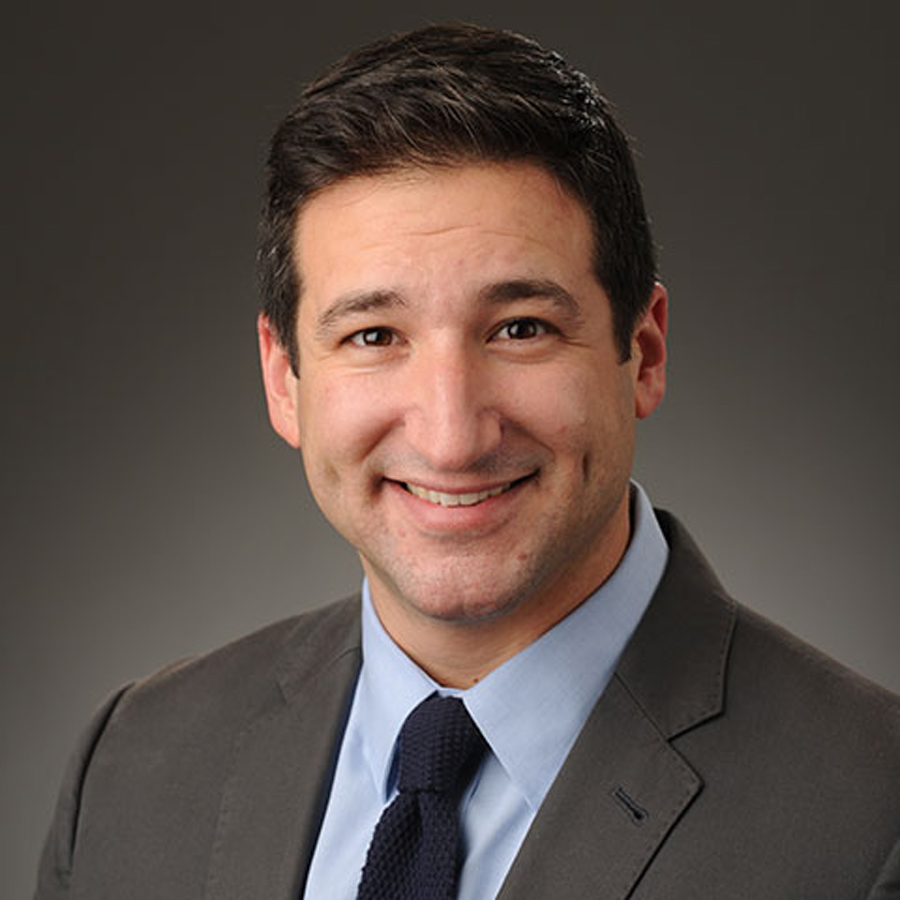
To ensure the students’ diligent work would not go to waste, Adam Shlahet ’02, director of Fordham Law’s Brendan A. Moore Trial Advocacy Program, partnered with Justin Bernstein, director of the A. Barry Cappello Program in Trial Advocacy at UCLA Law, to host the first-ever virtual national trial advocacy competition. They expected a relatively modest response, but as it turns out, law students nationwide were hungry to compete, even if that meant doing so online.
Shlahet and Bernstein received entries of recorded opening statements from 170 students, representing 67 law schools across the country, including 18 Fordham Law students. Nearly 400 judges signed up to preside over the online competition. Fordham Law student Carolyn McGuigan ’21 was among the finalists, taking home a cash prize for third place.
Shlahet is bullish on the virtual format and the potential for more remote competitions. “There was so much buy-in from competitors and judges that I am sure we will run similar programs in the future,” says Shlahet.
Based on the success of the national competition, Fordham Law took the annual William M. Tendy Federal Criminal Trial Advocacy Competition online as well. Named for alum William Tendy ’49, a 30-year veteran of the U.S. Attorney’s Office for the Southern District of New York (SDNY), the spring intramural competition pits teams of Fordham Law students against each other in a mock criminal trial.
Moving a trial online posed a few logistical challenges. “Usually, when you’re handling evidence, you show it to the opposing counsel, you approach the witness and hand them something to look at before asking them questions about it,” Shlahet explains. “That all has to be modified for online competitions. We needed to be creative, so we used Zoom’s screen-sharing function to share exhibits.”
Despite the hurdles of adapting the Tendy, the virtual format allowed the organizers to experience much more of the competition firsthand. “The preliminary rounds are usually held at the Southern District of New York courthouse,” says Tendy student co-organizer Arielle Burstein ’20. At the SDNY courthouse, typically only the organizers are allowed to keep their cell phones with them. The lack of connectivity makes it difficult to stay in contact with competitors and judges throughout the rounds of the competition, and as a result, Burstein and co-organizer Raina Duggirala ’20 would miss many of the highlights. “But this year it was a lot easier to figure out what was happening in each trial,” Burstein notes, since everyone was competing via Zoom and had access to their phones. “So, if someone was giving a particularly good questioning or summation, we were able to jump in and watch that as it was happening.”


Adam Shlahet ’02
“The credit that Professor Shlahet and the student organizers and participants bring to Fordham as we showcase the work of our Brendan Moore Advocacy Center to the distinguished Tendy Competition judges is amazing,” says Professor James Kainen, Brendan Moore Chair in Advocacy.
Despite the huge setback of canceling in-person competitions, Shlahet is sanguine about the transformation that took place. “The foundation of the advocacy—asking smart questions, writing persuasive opening statements, and making creative arguments—all of that is still there,” he says. “In the current climate and in the future, there will be legal proceedings, hearings, and maybe even trials that happen entirely online. We’re training our students to be ready for that.”